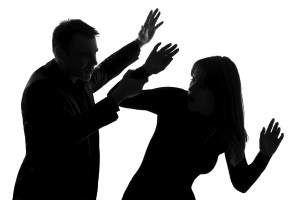 Domestic violence has been a large social and criminal concern for a very long time, and it continues to be so. Many victims of domestic violence don’t feel comfortable calling the police or doing anything that may get their abuser in any kind of trouble, because they are afraid of the repercussions they will suffer at a later date from their attacker. So what can we do to try and stop domestic violence?
Domestic violence has been a large social and criminal concern for a very long time, and it continues to be so. Many victims of domestic violence don’t feel comfortable calling the police or doing anything that may get their abuser in any kind of trouble, because they are afraid of the repercussions they will suffer at a later date from their attacker. So what can we do to try and stop domestic violence?
If you or someone you know is suffering from domestic violence (or you have suspicions that they are a victim of domestic violence) you can try to talk to them about their situation. Sometimes victims of domestic violence will feel much more comfortable confiding in someone they know and trust than with the police or a therapist/counselor. Talking with the victim may make them feel better because they will know that they have someone in their life that cares for them and is willing to listen.
You can also contact the local domestic violence organization and ask a speaker to come to your neighborhood to speak out against domestic violence, or you can speak out against it yourself. You can donate to the local domestic violence shelter or even volunteer to help out at the shelter. Your neighborhood watch (if you have one) can be informed about the dangers of domestic violence and can watch out for signs of it while they are also watching for crimes, especially during the holidays.
If you or someone you know is a victim of domestic violence, you can refer them to a domestic violence shelter or the domestic violence hot-line (1-800-799-7233) who will be able to give them resources that may better assist them in making the violence stop. Of course, if you see any signs of domestic violence and are afraid that it may be escalating in any way, or you are afraid for the victim, you can always call the police.
For the victims of domestic violence, they above listed suggestions may assist them, but the victims themselves can also file a restraining order, a protective order, a civil suit against their abuser, go to a domestic violence shelter, and/or talk to a therapist or counselor, or contact the police. There are several different options for trying to make the violence stop. Not all of these options may be the best for every specific individual. Usually, victims of domestic violence will need to use several of these options simultaneously, not just to get their abuser to stop abusing them, but also to get the mental help they need in order to work through this traumatic time in their lives.
For more information on domestic violence and how to prevent it, you can contact the domestic violence hot-line (phone number is listed above), consult with an attorney, call The Law Office of Amy M. Montes. Send us a message by submitting our online form.




